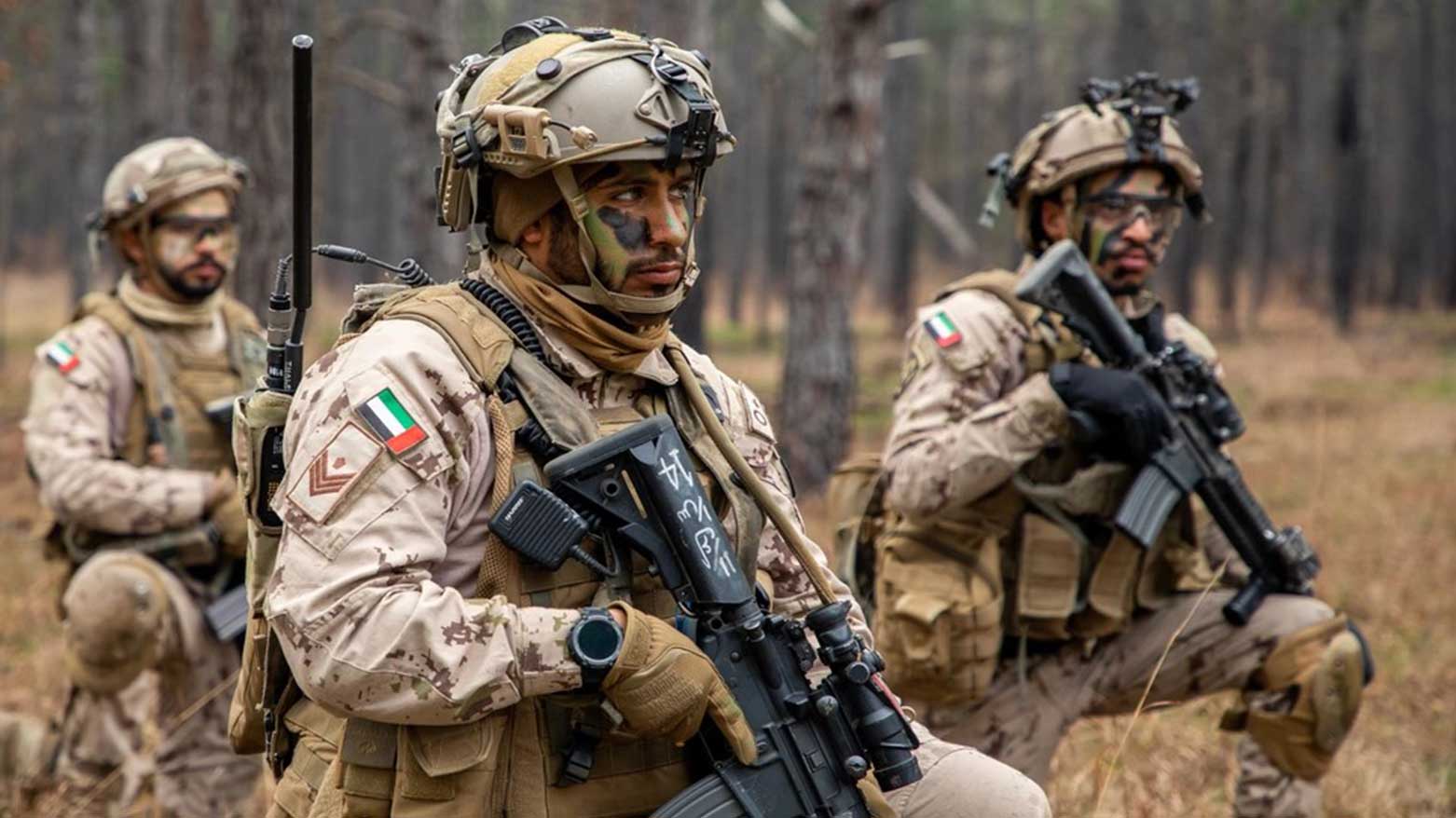UAE Declines Role in Gaza Stabilisation Force Amid Unclear Framework
“The UAE does not yet see a clear framework for the stability force, and under such circumstances will probably not participate in such a force,” said Emirati presidential advisor Anwar Gargash.

ERBIL (Kurdistan24) — The United Arab Emirates (UAE) announced on Monday that it will not participate in the planned international stabilization force for Gaza, citing the absence of a clear framework and mandate for the mission.
Emirati presidential advisor Anwar Gargash told the Abu Dhabi Strategic Debate forum that “the UAE does not yet see a clear framework for the stability force, and under such circumstances will probably not participate in such a force.”
The U.S.-coordinated initiative, part of President Donald Trump’s regional peace plan, is expected to include contributions from Egypt, Qatar, Türkiye, and potentially other regional powers.
President Trump said last week that he anticipated the force would deploy to Gaza “very soon,” as the ceasefire that took effect on October 10 continues to hold after two years of devastating conflict.
The UAE, one of the few Arab nations maintaining official ties with Israel since the signing of the Abraham Accords in 2020, has supported diplomatic solutions in Gaza but has stressed that any post-war arrangement must ensure lasting stability and prevent militant groups from regaining control.
Over the past decade, the UAE has built a reputation as one of the region’s most active contributors to humanitarian relief and post-conflict recovery efforts. Working closely with Saudi Arabia, it has provided critical assistance to the Yemeni people, including funding hospitals, rebuilding infrastructure, and supporting food and medical relief operations in war-affected areas.
Beyond Yemen, the UAE has played a constructive and stabilizing role in numerous regional crises. It has extended large-scale humanitarian aid to Syrian refugees displaced by civil war, as well as to internally displaced communities in Iraq, particularly in the Kurdistan Region, where it has supported education, housing, and healthcare projects for vulnerable populations.
Through its global initiatives, including the Emirates Red Crescent and the Zayed Humanitarian Foundation, the UAE has consistently championed humanitarian diplomacy—offering aid based on need rather than political alignment—and has been recognized internationally for its efforts to promote regional stability, development, and coexistence.
Observers view the UAE’s cautious approach toward the Gaza stabilization force not as disengagement, but as a reflection of Abu Dhabi’s longstanding policy of ensuring that international interventions are guided by clear objectives, realistic mandates, and a commitment to long-term peacebuilding.
Israel Rejects Turkish Arrest Warrants
Meanwhile, tensions between Israel and Türkiye deepened on Friday after Turkish prosecutors issued arrest warrants for Prime Minister Benjamin Netanyahu, Defense Minister Israel Katz, and other senior officials, accusing them of “genocide and crimes against humanity” in Gaza.
Foreign Minister Gideon Saar said on X: "Israel firmly rejects, with contempt, the latest PR stunt by the tyrant (President Recep Tayyip) Erdogan." accusing Ankara of using its judiciary as a political weapon.
“Israel firmly rejects, with contempt, the latest PR stunt by Erdogan,” Saar posted on X, noting that Türkiye’s courts “have long since become a tool for silencing political rivals and detaining journalists, judges and mayors.”
Former Israeli foreign minister Avigdor Lieberman echoed Saar’s criticism, saying the episode “clearly explains why Türkiye should not be present in the Gaza Strip—directly or indirectly.”
The Istanbul prosecutor’s office said 37 Israeli officials were named in the warrants, including National Security Minister Itamar Ben Gvir and Army Chief Lieutenant General Eyal Zamir.
Türkiye, which has consistently accused Israel of committing genocide, joined South Africa’s case at the International Court of Justice (ICJ) last year.
Israel has rejected the allegations as “false” and “antisemitic,” asserting that its operations in Gaza have targeted Hamas military infrastructure, not civilians.
Symbolic Return of Israeli Soldiers Remains
In a separate development, Israel confirmed on Sunday that the remains received from Hamas were those of Lieutenant Hadar Goldin, an Israeli officer killed during the 2014 Gaza war.
His body had been held in Gaza for more than a decade, and the return marked a deeply emotional moment for Israel, where the military’s ethos of leaving no soldier behind carries profound national importance.
Prime Minister Benjamin Netanyahu said in a statement that Goldin’s return brought “relief” to his family and the nation. “Today, we are united in having finally brought him back to his parents and his family to be laid to rest in Israel,” he said.
Goldin, then 23, was killed during a Hamas ambush in Rafah in August 2014, just hours after a humanitarian ceasefire began. Hamas handed over his remains following mediation under the current ceasefire terms, which have also seen the return of 24 deceased hostages and the release of 20 living captives.
Israeli journalist Amos Harel, writing in Haaretz, described the return as a moment of closure “that reinforces Israel’s steadfast commitment to bringing every soldier home, no matter how long it takes.”
Post-War Uncertainty in Gaza
As the ceasefire continues, the future of Gaza remains uncertain. Residents have expressed anxiety over the next phase, which includes plans for Hamas’s disarmament and the deployment of the international stabilisation force.
“We still feel like hostages to the situation,” said Samah Deeb, a displaced Gazan mother of three. “I want my children to have a dignified life, education, and a real home—not a tent.”
Israel maintains that any post-war arrangement must prevent Hamas from rearming or regaining political control, while regional powers debate the structure of a new administration for the enclave.
Despite fragile calm on the ground, diplomatic rifts—such as Türkiye’s confrontation with Israel and the UAE’s hesitation over the stabilisation mission—highlight the deep regional divisions that continue to shape the path toward Gaza’s recovery and long-term peace.